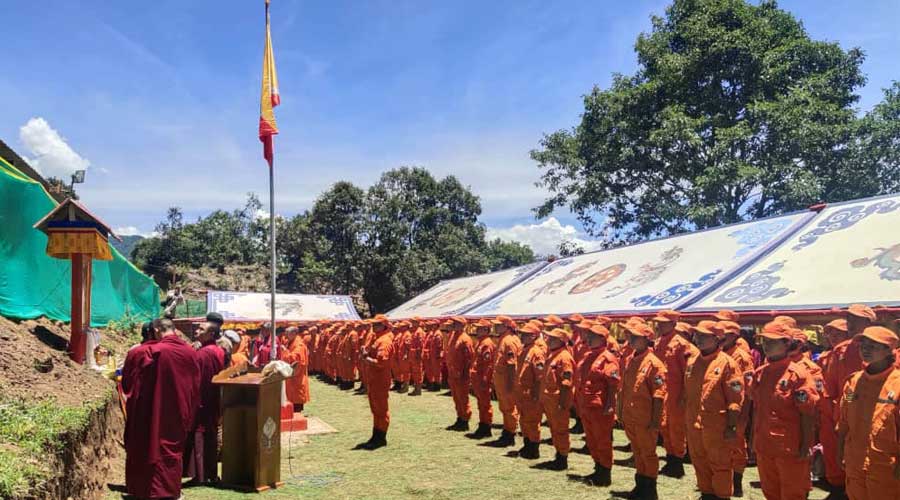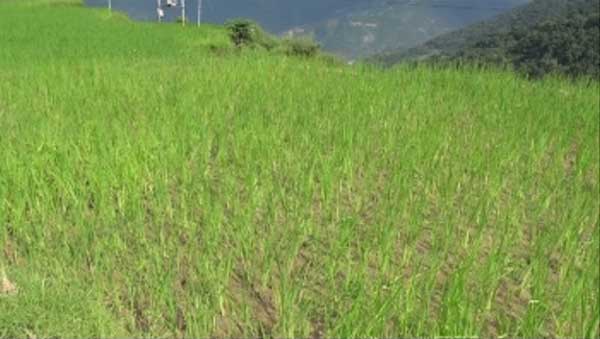
Starting next year, farmers of Tongmajangsa Gewog in Trashi Yangtse can transplant paddy without having to worry about irrigation water. Thanks to the DeSuung National Service Water Project which kicked off on Friday. Two chiwogs in the gewog have been facing irrigation water shortages for years.
Every year, farmers of Pang-Lhauzhing and Maenchhu-Tsangdhung chiwogs depend on two streams- Gongchu and Barchu for paddy transplantation. But on hot sunny days, the water level decreases. And the water gets insufficient for about 170 households in the Chiwogs.
 Without water, the paddy fields have developed cracks and saplings that were transplanted earlier last month have started wilting. This has been the situation for years.
Without water, the paddy fields have developed cracks and saplings that were transplanted earlier last month have started wilting. This has been the situation for years.
“When it rains, we receive enough water supply and the yield is good. Without water, the fields are like roads and have developed cracks. After transplanting, we have to wait for our turn to get water. We get water supply only after two to three weeks,” said Tshering Gyeltshen, a resident of Togkaphu village.
However, the situation is expected to improve from next year as 70 DeSuups started working on a project to provide water from a new source, Rawadrang. The project will be completed by end of this year.
With this, farmers are hoping for a better yield from next year.
“We have been seeking help starting from 2008, as water is not sufficient for irrigation purposes. The DeSuung water project will benefit us now,” said Tshering Gyeltshen.
“We would like to thank His Majesty The King. The production is likely to increase with the arrival of a new water supply. Those who produce 200 kilograms of paddy will increase to 400-500 kilograms,” said Singye, a resident from Gabteng village.
During the next six months, DeSuups will construct nine water tanks and install pipelines. The project will cost about Nu 32 M.
Including this, there are three water projects in Trashi Yangtse. A drinking water project in Kheni was completed while an irrigation water project in Wangrimo is ongoing.
Sonam Darjay, Trashi Yangtse
Edited by Tshering Zam









